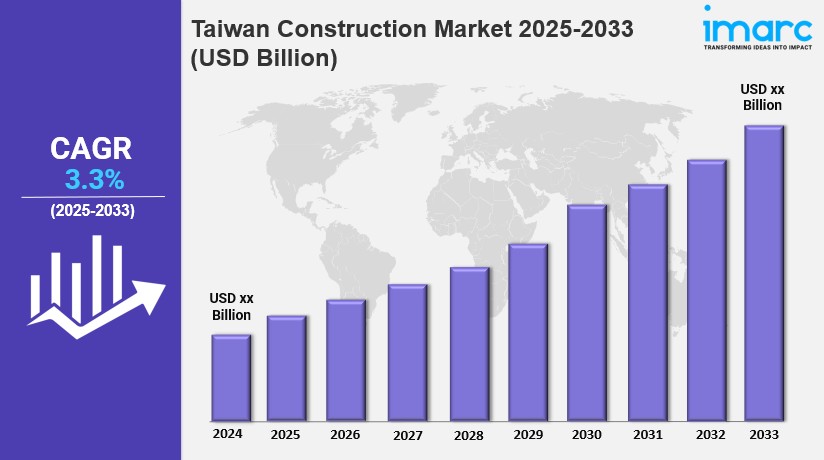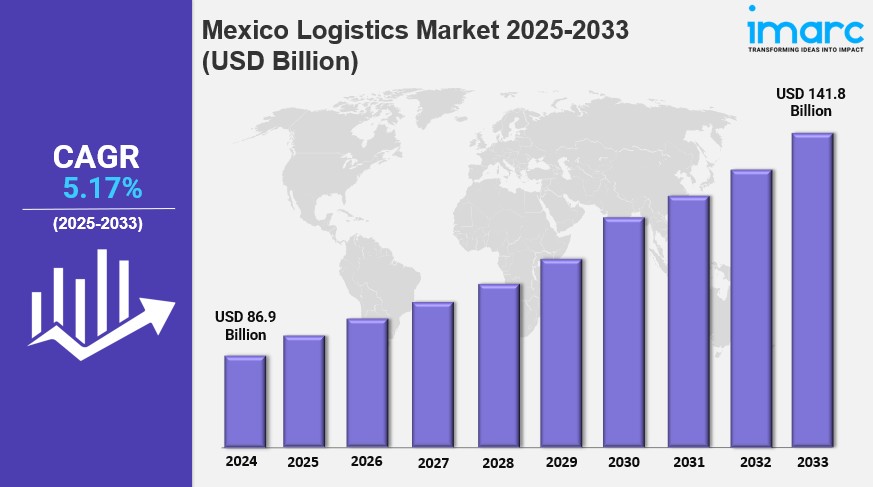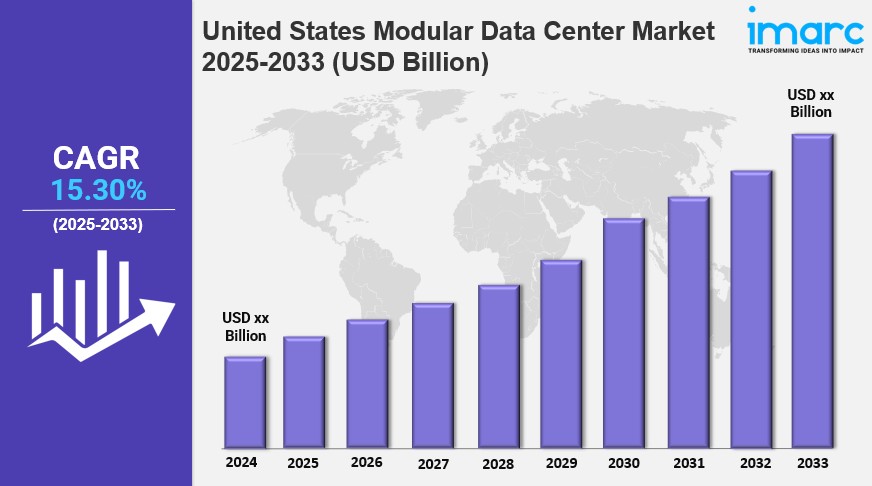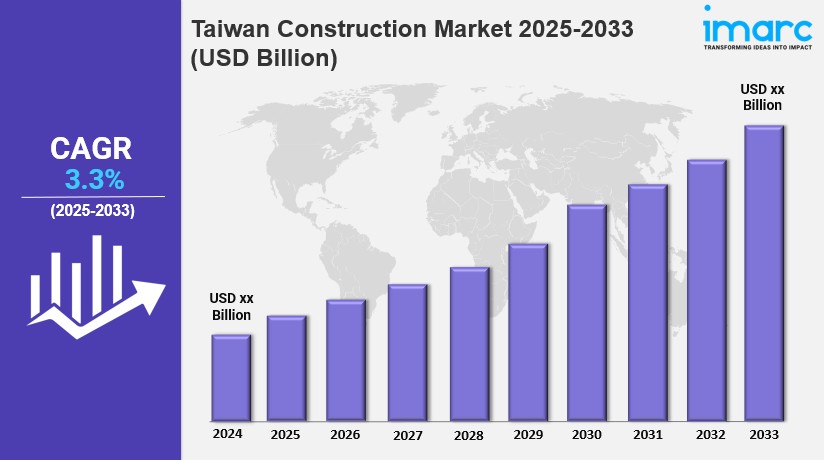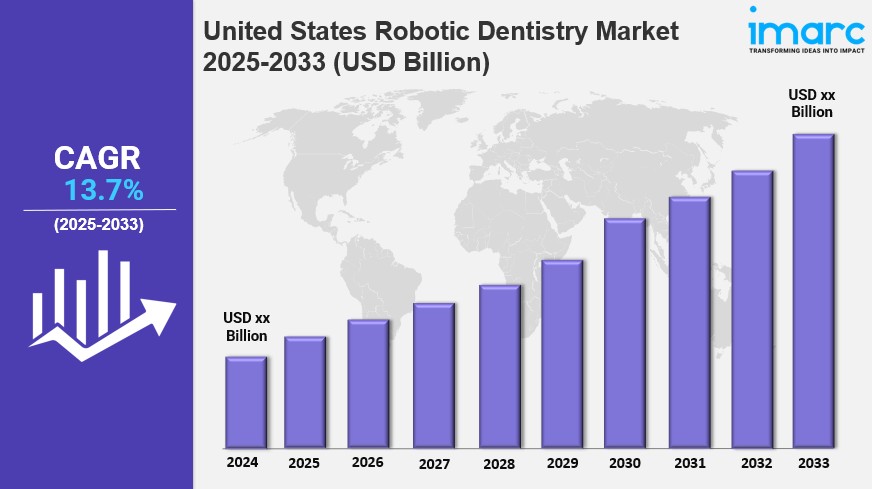Qatar E-Commerce Market Report 2025: Sector to Reach USD 10.1 Billion by 2033 at a 10.27% CAGR
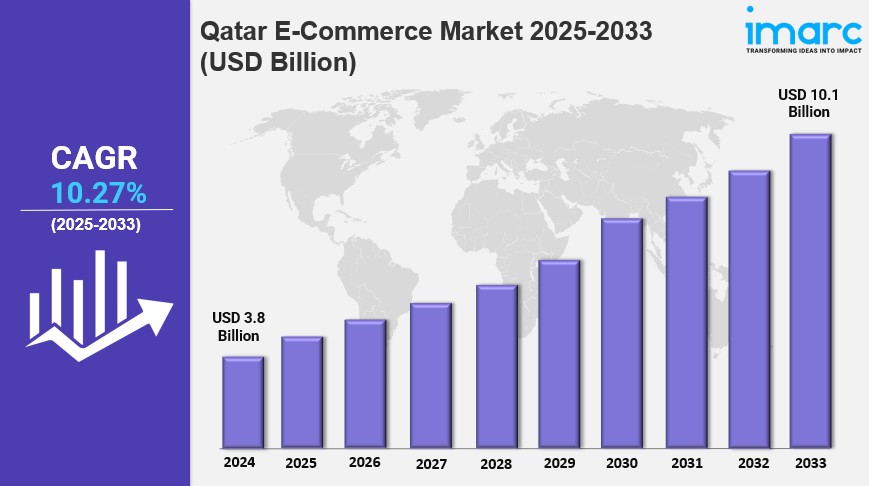
Strong 8k brings an ultra-HD IPTV experience to your living room and your pocket.
Market Overview 2025-2033
The Qatar e-commerce market size reached USD 3.8 Billion in 2024. Looking forward, IMARC Group expects the market to reach USD 10.1 Billion by 2033, exhibiting a growth rate (CAGR) of 10.27% during 2025-2033. The market is expanding rapidly, driven by growing internet penetration, digital payment adoption, and shifting consumer preferences. Key trends include a surge in mobile commerce, increasing demand for international brands, and the rise of quick commerce for faster deliveries.
Key Market Highlights:
✔️ Strong growth driven by rising digital adoption and evolving consumer behavior
✔️ Increasing preference for mobile commerce and seamless online shopping experiences
✔️ Growing demand for international brands and luxury products
✔️ Expansion of quick commerce for faster and more convenient deliveries
✔️ Advancements in AI-driven personalization and secure digital payments
✔️ Strengthening logistics networks to enhance last-mile delivery efficiency
Qatar E-Commerce Market Trends and Driver:
The Qatar e-commerce market is undergoing a significant transformation towards hyperlocal models, driven by a growing demand for instant gratification and convenience. This shift is characterized by the rise of on-demand delivery services, particularly for food, groceries, and pharmaceuticals. Companies are utilizing advanced logistics and real-time tracking to ensure rapid delivery within specific geographic areas, addressing the time-sensitive needs of urban consumers. The preference for localized services is further enhanced by high mobile penetration rates and the increasing use of smartphone applications. This trend is not solely about speed; it focuses on building trust and loyalty through consistent, reliable, and personalized service within communities. Local businesses are adapting by integrating with these platforms, expanding their reach without requiring extensive physical infrastructure. Additionally, the incorporation of digital payment solutions, such as mobile wallets and contactless payments, has streamlined transactions, making hyperlocal e-commerce even more seamless.
The competitive landscape is intense, with players optimizing delivery routes, enhancing customer experiences through personalized recommendations, and offering competitive pricing. This hyperlocal trend is also fostering the growth of specialized niche markets, such as artisan food delivery and local craft marketplaces, contributing to a vibrant and diverse e-commerce ecosystem. The emphasis on localized services reflects a cultural preference for supporting local businesses and strengthening community ties, which is a significant factor in Qatar's unique market dynamics. The availability of fast internet connectivity further accelerates this shift, facilitating smooth online transactions and real-time communication between customers and service providers. This environment fosters a culture of immediacy, where consumers expect and receive goods and services within remarkably short timeframes, transforming traditional shopping habits and expectations.
The Qatar e-commerce market is also witnessing a notable increase in cross-border transactions, fueled by the population's high disposable income and strong appetite for international brands. Consumers are increasingly turning to global e-commerce platforms to access a wider range of products, particularly in categories such as fashion, electronics, and luxury goods. This trend is supported by the country's robust logistics infrastructure, including efficient air cargo services and well-connected ports, enabling seamless international shipping. Moreover, government initiatives to streamline customs procedures and reduce trade barriers have significantly contributed to the growth of cross-border e-commerce. International brands are recognizing the potential of the Qatari market and actively establishing their online presence through localized websites and partnerships with local distributors. The integration of multilingual customer support and localized payment options is essential for attracting and retaining Qatari consumers.
The demand for authentic and exclusive products drives cross-border e-commerce, with consumers seeking unique items that may not be readily available in the local market. The rise of social commerce, where consumers discover and purchase products through social media platforms, also plays a significant role in promoting cross-border transactions. Influencer marketing and targeted advertising campaigns effectively reach Qatari consumers, driving sales for international brands. Increasing familiarity with international shipping and return policies has boosted consumer confidence in cross-border e-commerce. Additionally, the growing population of expatriates is increasing demand for products from their home countries, further propelling cross-border e-commerce. The integration of advanced analytics and AI-powered personalization tools is helping e-commerce platforms better understand consumer preferences and tailor their offerings, further fueling the growth of cross-border transactions.
The Qatari e-commerce market is rapidly transitioning towards digital payment solutions, driven by the government's push for a cashless society and the increasing adoption of mobile technologies. This shift is characterized by the widespread use of mobile wallets, contactless payments, and online payment gateways. The preference for digital payments is amplified by the convenience and security they offer compared to traditional cash transactions. E-commerce platforms are investing heavily in robust security measures, including encryption technologies and fraud detection systems, to protect consumer data and build trust. The Central Bank of Qatar plays a crucial role in regulating and promoting the adoption of digital payment solutions, ensuring a secure and efficient payment ecosystem.
The integration of biometric authentication methods, such as fingerprint and facial recognition, is further enhancing the security of online transactions. The rise of fintech startups is also contributing to the innovation and diversification of digital payment options in Qatar. QR code payments and other mobile payment technologies are becoming increasingly common in both online and offline retail environments. Emphasizing data privacy and security is critical for building consumer confidence in digital payment solutions. Government initiatives to promote financial literacy and digital inclusion are also facilitating the widespread adoption of digital payments. The increasing integration of e-commerce platforms with banking systems and mobile network operators is streamlining the payment process and enhancing the overall customer experience. This dynamic is further driven by a growing number of young, tech-savvy consumers who are comfortable using digital payment technologies.
Qatar E-Commerce Market Segmentation:
The report segments the market based on product type, distribution channel, and region:
Study Period:
Base Year: 2024
Historical Year: 2019-2024
Forecast Year: 2025-2033
Breakup by Type:
- Home Appliances
- Apparel, Footwear and Accessories
- Books
- Cosmetics
- Groceries
- Others
Breakup by Transaction:
- Business-to-Consumer
- Business-to-Business
- Consumer-to-Consumer
- Others
Breakup by Region:
- Ad Dawhah
- Al Rayyan
- Al Wakrah
- Others
Competitive Landscape:
The market research report offers an in-depth analysis of the competitive landscape, covering market structure, key player positioning, top winning strategies, a competitive dashboard, and a company evaluation quadrant. Additionally, detailed profiles of all major companies are included.
Contact Us:
IMARC Group
134 N 4th St. Brooklyn, NY 11249, USA
Email: [email protected]
Tel No:(D) +91 120 433 0800
United States: +1-631-791-1145
Note: IndiBlogHub features both user-submitted and editorial content. We do not verify third-party contributions. Read our Disclaimer and Privacy Policyfor details.



